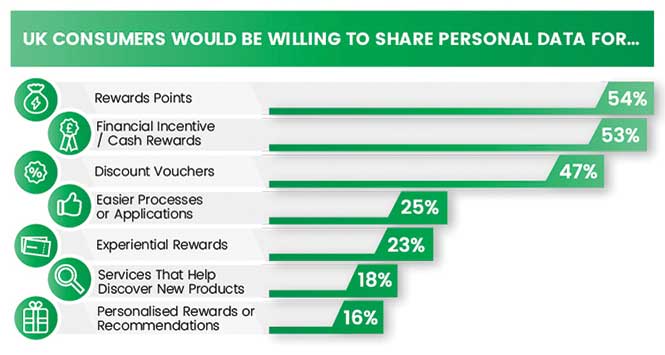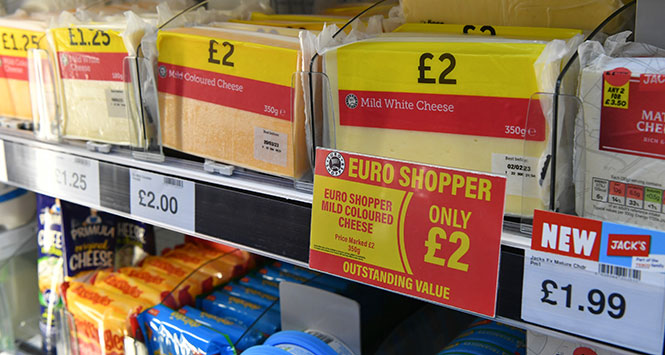With new personal data rules coming into force on May 25, new research shows that consumers are willing to provide their data – if they receive something of value in return.
The new General Data Protection Regulation (GDPR) rules are set to come into force in the UK on May 25 and retailers need to be prepared for that date if they store any personal information whatsoever about their customers. This is particularly important for the many retailers who operate loyalty schemes. The reality is that we live in a highly connected society, where consumers have a plethora of devices at their disposal. Every time consumers use their smartphones, tablets and computers to engage in activities online they are either consciously or subconsciously increasing their digital/data footprint.
As consumers share more about their location, what they are doing at specific moments in time and what interests them – they are enabling brands to capture more information about them.
From May 25 it will be increasingly difficult for retailers to obtain, store and use personal data, particularly as the data handling governing body, the Information Commissioner’s Office, says that its studies show only one in five UK consumers has trust or confidence in how companies store and use their personal data.
Online deals business Onbuy.com has analysed findings from a Mindshare survey of more than 6,000 people from across the UK to better understand their attitudes towards sharing personal data and has made some interesting discoveries.
OnBuy found that 60% of UK consumers would be most uncomfortable sharing their private conversations from the messaging platforms they are active on. Thereafter, a consumer’s search history from their web browser was the next most citied source of data that consumers would refrain from wanting to share at 51%.
In contrast to what customers would feel most uncomfortable with sharing, OnBuy found that consumers would be least uncomfortable with sharing their fitness tracker data (36%).
However, the research also revealed that there are moments when UK consumers would be willing to exchange their personal data. OnBuy found that customers would most do so for reward points at 54%. Closely behind was financial incentives/cash rewards, which 53% of UK consumers would be willing to trade their personal data for.
Conversely, personalised rewards or recommendations is the incentive that UK consumers would be least enthusiastic about exchanging their personal data for at only 16%. Personalised rewards or recommendations ranking last was very surprising, given that many companies want to primarily utilise personal data to give their customers a more tailored experience in accordance to their needs and wants.
Oddly enough, despite the forthcoming tightening of data protection laws, 61% of UK consumers believe they will inevitably be giving data to more companies for the foreseeable future.
Cas Paton, Managing Director of OnBuy.com commented: “With multiple organisations suffering from high-profile breaches, data now more than ever is a major consideration for consumers. As consumers comprehend what their data can reveal about them, organisations have a key role in alleviating any concerns they may have. All organisations should store consumer data safely and use it only when they truly feel it will improve the experience as well as the interaction with their brand.”





